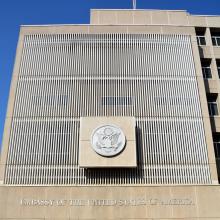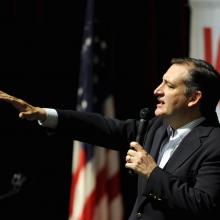Ted Cruz
The Supreme Court’s new nine-month term, which begins on Monday, promises to be among the most momentous in generations. The justices are poised to decide major cases that could roll back abortion rights and broaden gun and religious rights.
Here is a look at some of cases the court will decide during the term, which runs through the end of next June.
DESPITE THE GUT-DEEP fear in the world today, I couldn’t help but sit in awe of the cherry tree in my front yard. Spring seemed more beautiful this year, and the fallen petals covering our lawn—like snow from the winter we never had—lifted me to a brief, dreamlike reverie.
As it turned out, I was sharing that moment with the cats, who had joined me on the porch. Their unusual attentiveness prompted me to explain why I was at home on a weekday, why they now get their breakfast at 7 a.m. instead of 6 (despite their desperate scratching on the other side of a newly closed door), and why life had otherwise changed in our house.
I told them that a virus was taking hold of our world and that our nation, in crisis but true to its exceptional nature, was led by a president who is exceptionally unqualified for this moment. One of the cats licked his hindquarters in unspoken agreement, and neither contradicted me when I added how shameless were Republican leaders who wanted corporate tax breaks in a rescue package.
When one of them (a cat, not a Republican leader) tried to jump into my lap, I demurred, if demur is the correct word when describing a quick swipe of the hand. I apologized, and started to explain social distancing, but you know how it is when you talk to cats. They maintain eye contact, seeming to treat the matter seriously, but their minds are elsewhere. Perhaps contemplating the sweet sound of a can opener at 6 a.m.

Image via meunierd/Shutterstock.com
It wasn’t long ago that Rubio and Cruz criticized the Obama administration for the deaths of four Americans, including Chris Stevens, the U.S. ambassador to Libya, in a terrorist attack on a U.S. consulate in Benghazi.
“Congress and the Executive Branch need to work together to do everything possible to make sure something like this does not happen again,” said Rubio in June 2016.

Photo via Wikimedia Commons
The Focus on the Family founder released his endorsement on July 21, hours before Trump was set to take the stage to accept his party’s nomination on the last night of the 2016 Republican National Convention in Cleveland.

Image via Gino Santa Maria / Shutterstock.com
An Indiana evangelical leader says he and other Christians are in an “untenable situation” after Senator Ted Cruz’s withdrawal from the 2016 presidential race.
Speaking on NPR’s Morning Edition program, Ron Johnson Jr., head of the Indiana Pastors Alliance, could not explain why 50 percent of Indiana’s evangelicals voted for Donald Trump, according to exit polls.

Photo via House GOP / Flickr
Former Speaker of the House John Boehner visited Stanford on April 27 to chat about his time in Washington, D.C., but the conversation quickly turned to what he thinks of the current Republican presidential candidates.

Image via REUTERS/Dave Kaup/RNS
Muslim groups say Sen. Ted Cruz and his Capitol Hill staff refused to see them during an annual lobbying day in which hundreds of Muslim constituents met with their senators and representatives.
On April 18, while Cruz was in New York, campaigning in advance of the April 19 presidential primaries in that state, a group of 14 Muslim Texans marking “National Muslim Advocacy Day” went to the candidate’s Washington office.

Image via REUTERS/David Ryder/RNS
The 2016 Republican presidential campaign boils with anti-immigrant rhetoric but candidates’ harsh proposals don’t resonate with most Americans, particularly religious believers and young adults.
A new analysis by the Public Religion Research Institute, released March 29 finds that many reject harsh proposals such as building a wall along the U.S.-Mexico border and deporting millions of undocumented immigrants, said Dan Cox, director of research for PRRI.

Metro station Bourse is closed after the Brussels terrorist attacks that took place on March 22. CRM / Shutterstock.com
Terrorists want to “terrorize” us. They want to make us angry and hostile. They want us to react and overreact to them. They want us to suspect, to racially and religiously profile, discriminate against, and attack all Muslims. Because that will help the terrorists recruit more young Muslims to their cause — and make it harder for other Muslims to work against them. They want to politicize everything and turn people’s attention away from the massive losses for human life that these evil terrorists represent.
We must deny them their victory. Here’s how.

Crowd at a Marco Rubio rally Feb. 27 in Kennesaw, Ga., Michael Powell / Shutterstock.com
Nearly everyone I know believes that one or more of the presidential candidates is an exceptionally bad leader, and this leaves us to grapple with why so many of our fellow Americans support them. Personally, I reject public stupidity as an explanation for anything. Our people deserve a more generous attempt to understand them. So let us look deeper.
More than 50 conservative Catholic activists and political leaders have come out in support of Republican presidential hopeful Ted Cruz in an effort to shore up Catholic backing for Cruz as an alternative to Donald Trump. Among them is a priest from South Carolina who may be skirting the edges of his own church’s policies against clerics becoming involved in politics.

Empty podiums at the Republican debate on Dec. 15 in Las Vegas. Joseph Sohm / Shutterstock.com
I can’t watch the political debates for long without feeling sick: So much animosity and ego and bullying and attacking and negativity; so little thoughtful discussion and kindness. The toxic words seep inside my skin and into my emotions. I have to get away from it.
The worst part is when candidates use their “religion” as a justification for all of the ugliness being spewed — when they start trying to one-up the other and convince voters that they, themselves, are true believers who rank right up there on Jesus’ most-favored list.

Repbulican candidates at the Las Vegas debate on Dec. 15. Joseph Sohm / Shutterstock.com
When the media says “evangelicals” they really mean “white evangelicals” and virtually never measure the opinions and voting practices of black, brown, or even young evangelicals. In fact, they don’t even ask religious identity questions of Democratic primary voters where many of the black, brown, and young evangelicals may be voting. It is older white evangelicals who are mostly voting in the Republican primaries and now are increasingly supporting Donald Trump. “What?” is indeed the right question.
In this oddest of presidential election seasons, one odd fact is rarely mentioned: the curious age spread of the candidates.
At their first inauguration, our 43 U.S. presidents* have ranged in age from almost 43 to almost 70. More than half were in their 50s. Their median age was 55, and so was their average age.
But in 2016, now that we're down to seven candidates (Carson, Cruz, Kasich, Rubio, and Trump vs. Clinton and Sanders), not a single candidate is in his or her 50s.

Image via REUTERS/Joshua Roberts/RNS
Sen. Ted Cruz said he has asked his communications director to resign after spreading a false story on social media about Sen. Marco Rubio.
“Our campaign should not have sent it,” Cruz said Feb. 22 before speaking with supporters at a neighborhood YMCA in Las Vegas.
“That’s why I’ve asked for Rick Tyler’s resignation.”

Senator Ted Cruz is a guest during a morning service at Christian Life Assembly of God in Des Moines, Iowa on Nov. 29. Photo by Clay Masters, iprimages/Flickr.com
Ted Cruz ended Monday night with a yuuuuge victory over Donald Trump in Iowa. (Sorry, had to do it!) Religion played a big role in Cruz’s victory. The New York Times reports that Cruz’s victory was “powered by a surge of support from evangelical Christians.”
For his part, Cruz reaffirmed his connection with his evangelical supporters by evoking divine favor upon his victory. “God bless the great state of Iowa! Let me first say, to God be the glory.”
But I can’t help but feel uneasy about the God proclaimed by the so-called "evangelical vote." That’s because, when it comes to their evangelical faith, they have an identity crisis.

Image via Pew Research Center
Republicans and Democrats divide sharply over views on Islam, Muslims, and how a U.S. president should label violent extremists. But Americans overall agree there’s a “a lot” of discrimination against Muslims living in the United States — and it’s rising — a new Pew Research survey finds.

Image via REUTERS/Brian C. Frank/RNS
Now that Ted Cruz has won Iowa’s Republican presidential caucus, he may want to listen more closely to those evangelicals who supported him on the subject of climate change. Just last month, the Texas senator, who chairs the Senate’s Subcommittee on Space, Science, and Competitiveness, proudly claimed, “According to the satellite data, there has been no significant global warming for the past 18 years.”
As Donald Trump continues to dominate media that try to balance a fascination for celebrities with a duty to check facts claimed by public figures of all stripes, some critics of the GOP presidential frontrunner may recall 18th century novelist Oliver Goldsmith’s line, “The loud voice that spoke the empty mind.” But a more apt thought may come from the classic 1983 movie “A Christmas Story” (airing on Turner cable networks dozens of times this week).
Remember Ralphie noticing the neighborhood bully?
It’s one of the most intriguing sub-plots of the 2016 election: Why are evangelicals, who historically have supported immigration reform and a path to citizenship for deeply felt religious and moral reasons, gravitating towards the two candidates who are most hostile to policy changes that would accommodate and integrate undocumented immigrants into American life?




